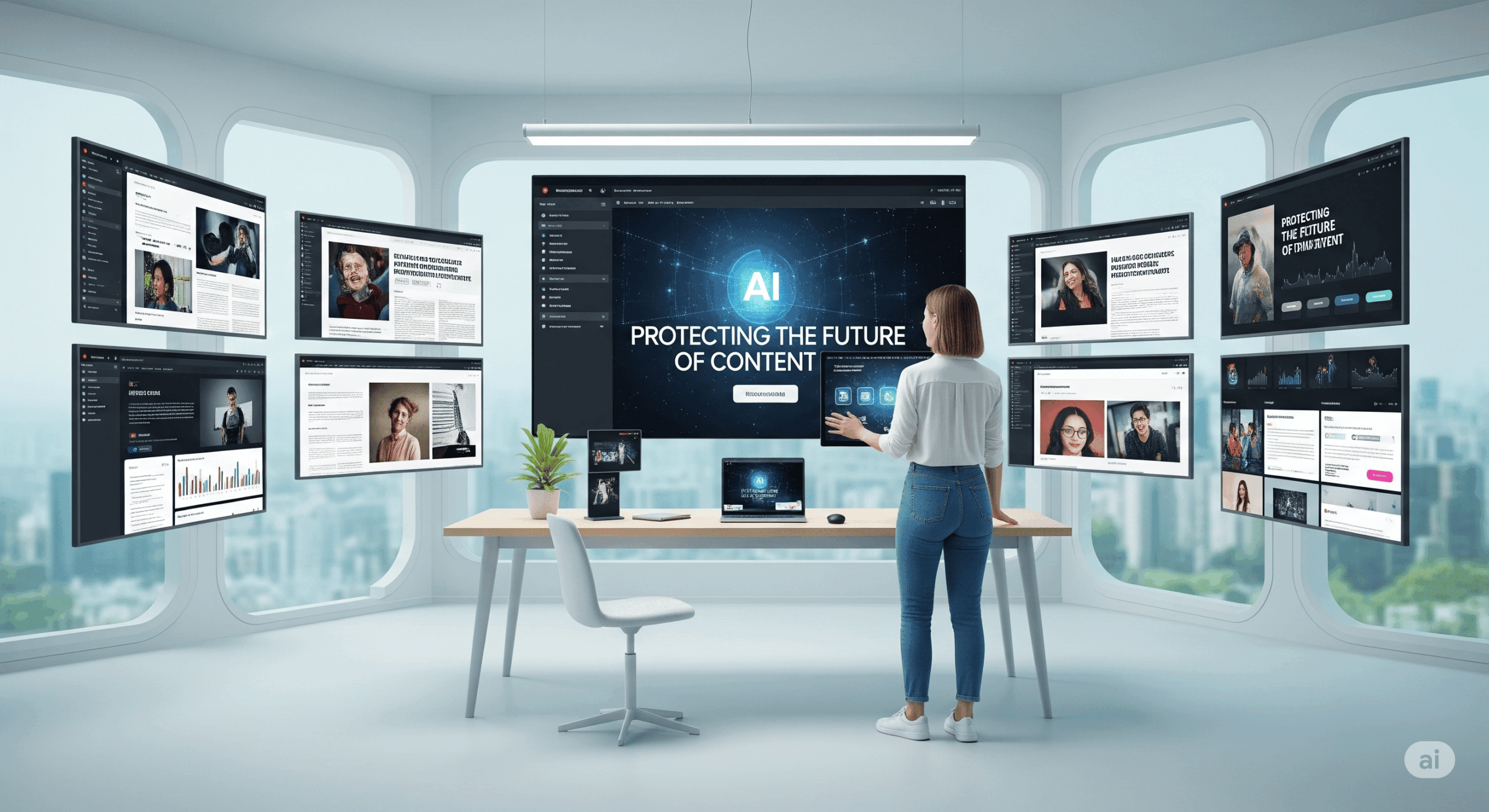The second session at Connected Creativity Forum today paired Vevo CEO Rio Caraeff with Vivendi Mobile Entertainment CEO Cedric Ponsot, to talk about making money from online video.
Ponsot kicked off with some advice on what he’s learned from working in the telecoms, music and FMCG industries. From the latter, he said « the client is king… when I moved to the music industry, I was more surprised that all the discussions were about the content, the artists ». What was lacking was research on customers – what they wanted to listen to and how.
« At the end of the day if you want to push something that the client doesn’t want, he will definitely find a way to push through the system and get what he wants. »
He also said having a unique selling proposition (USP) is crucial, while a third lesson was this: « Cannibalising yourself may save your life… It’s always very funny to see how the media and content industry has a lot of difficulty compared to what L’Oreal is doing to cannibalise itself – starting to create a new business within the company rather than outside. »
He also warned of an FMCG mantra – « it’s not because there is a hole in the market that there is a market in the hole » – just because there’s a gap, doesn’t mean a service filling it will be lucrative.
Ponsot moved next onto lessons from the telco industry. « The digital consumption is very much driven by subscription, not by a la carte… It has been a success in the telco industry and in a lot of other industries. And even when you think about the music industry, people can say iTunes is a la carte and is one of the biggest players, but when you think about what iTunes is, it’s really a subscription ». By which he clarified that it’s a closed environment, and users give their credit cards once, and then never have to again. « It looks more like a subscription. »
Ponsot warned that a simple user experience remains key, as is getting the right technology. « Involving yourself even as a manager or content producer in the technology now is critical. Absolutely critical. » He also said that walled gardens are not the solution to the challenges of digital disruption in the mid-to-long term.
Ponsot also gave some lessons from the music industry. « If you fear, you will miss the market, » he said, pointing to a lot of fear among French broadcasters of connected TV at the moment. « The time you spend on fearing is the time you would better use to try to create an answer to the consumer. »
He also said that three months should be the maximum time required to sign a licensing contract, due to the pace of technological innovation. Ponsot then moved on to Vivendi’s own Zaoza service, which offers films, games and music across all devices – TV, PC, tablets and phones – for €9.99 a month. It has launched in France and Germany so far.
Ponsot said that it’s vital that a service like Zaoza is available across all devices, making use of cloud computing, and only asking its users to pay once. He also said social recommendations are really important too and that for video, the quality is often more important than the freshness compared to music. He also said CRM and data analysis are vital.
Caraeff took the stage next to talk about how Vevo is trying to « restore the premium lustre » around music online. It makes music videos available across connected platforms.
Why is this necessary? « Go back about five years ago, I was running the digital business in North America for Universal Music Group, and we had licensed our music videos to dozens of businesses on the web, » he said. « We saw an incredible explosion happening back as early as 2001… Consumer interest and adoption of video on the web was exploding, but monetisation was going in the opposite direction. »
Caraeff said that advertisers were not perceiving music videos or their audience as valuable. « We saw major sporting events and the season premiere of new television shows attracting significant advertising dollars… and music was almost treated like a second class citizen with regards to the level of monetisation… You wouldn’t see premium broadcast quality ads or rates. »
Vevo’s goal: to make more money per play of a music video online, without hurting the artist or fan. Vevo is now the distribution platform that makes music videos available « everywhere », with a catalogue of more than 25,000 videos from 7,500 artists. The videos go out to sites including YouTube, AOL, BET, Facebook, CBS and Last.fm. They are also made available thruogh Android, Google TV, Boxee, Apple TV and Vevo’s own website.
Vevo has 54.5 million monthly unique viewers in the US – 31% of total internet users – and is the second largest video site behind YouTube in North America. There are four million active users of the Vevo mobile apps, which are driving 40 million monthly video streams, and 720,000 hours a month being spent in the apps.
« It’s doubling every 30 days in terms of the volume we’re seeing through there, » he said, before giving total stats: Vevo is seeing 900 million total video streams a month in the US and 2.5 billion a month worldwide through its partnerships.
Moderator Robert Tercek then helmed a Q&A segment, and picked up on Caraeff’s theme of ‘reconditioning the market’ to the premium value of content, as well as the cross-platform nature of both Vevo and Zaoza, and also the contrast between the subscription model of Zaoza versus the open nature of Vevo.
Caraeff declined to say which was best – « there are different people with different needs at different times in their life – and different circumstances ». He admitted that for music, « very few people want to buy and pay for it », which is what has spurred Vevo’s ad-funded approach. Will Vevo introduce a premium tier though? « Our ambition is to have multiple revenue streams, not just one. »
Tercek also picked up on the fact that Zaoza is not just a streaming service – it also allows people to download content. Ponsot explained that streaming is necessary on platforms like TV, but on other devices downloads can be more appropriate.
Caraeff explained the thinking behind Vevo being a joint venture between record labels, in terms of why they decided to set up their own platform rather than rely on other companies. « Apple is not focused on saving the music business, and Google is not focused on saving the music business, » he said.
Caraeff was asked about rumours that Vevo may buy Myspace, and declined to comment, but he did talk about social more widely. It’s more a case of fitting in with social platforms, giving Lady Gaga as an example – « we want to make sure we’re integrating her videos properly into her own page and her own environment… We’ve been premiering a lot of videos on Facebook recently, and that’s controlled by the artist… The music should be free to ride the social web and there shouldn’t be any restrictions or hurdles to prevent that. »




